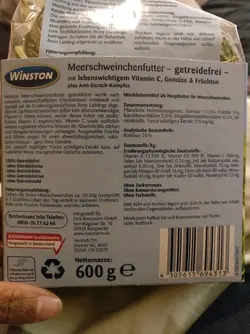PigMom94
Junior Guinea Pig
Hello everyone!
I am the mother of 4very happy guinea pigs. One of my pigs, her name is bubbles, has been qweaking quite loud everytime she pees. I got her from the Animal shelter and they didnt know how old she was. We are approximating that she is about 5-6 years old. She qweaks when she pees. Then she has another loud qweak, arches her back and poops. I read a couple of threads before going to the doctor and it sounded like a kidney or bladder stone or a UTI. We took her to the vet today. The vet pressed her abdomen and when she went lower near the bladder, bubbles qweaked really loud. So she took her in for an xray to see if they were stones. But she said she did not find any stones. She gave me some medicine that she said was a painkiller/anti-inflammatory. Its called METACAM. She said i should give it to her once everyday for a couple of days, and if it still doesnt get any better i should go back to her for a urine smear test. I gave bubbles the medicine today, but she still qweaks as loud as before and looks quite uncomfortable. Apart from that, she eats and drinks normally, is acting just like she always does. I have seen no other difference in her behaviour.
I wanted to ask you, if anyone had any idea if it was smart to wait a couple of days and just see if she gets better? Has anyone been through something like this before?
I am the mother of 4very happy guinea pigs. One of my pigs, her name is bubbles, has been qweaking quite loud everytime she pees. I got her from the Animal shelter and they didnt know how old she was. We are approximating that she is about 5-6 years old. She qweaks when she pees. Then she has another loud qweak, arches her back and poops. I read a couple of threads before going to the doctor and it sounded like a kidney or bladder stone or a UTI. We took her to the vet today. The vet pressed her abdomen and when she went lower near the bladder, bubbles qweaked really loud. So she took her in for an xray to see if they were stones. But she said she did not find any stones. She gave me some medicine that she said was a painkiller/anti-inflammatory. Its called METACAM. She said i should give it to her once everyday for a couple of days, and if it still doesnt get any better i should go back to her for a urine smear test. I gave bubbles the medicine today, but she still qweaks as loud as before and looks quite uncomfortable. Apart from that, she eats and drinks normally, is acting just like she always does. I have seen no other difference in her behaviour.
I wanted to ask you, if anyone had any idea if it was smart to wait a couple of days and just see if she gets better? Has anyone been through something like this before?
